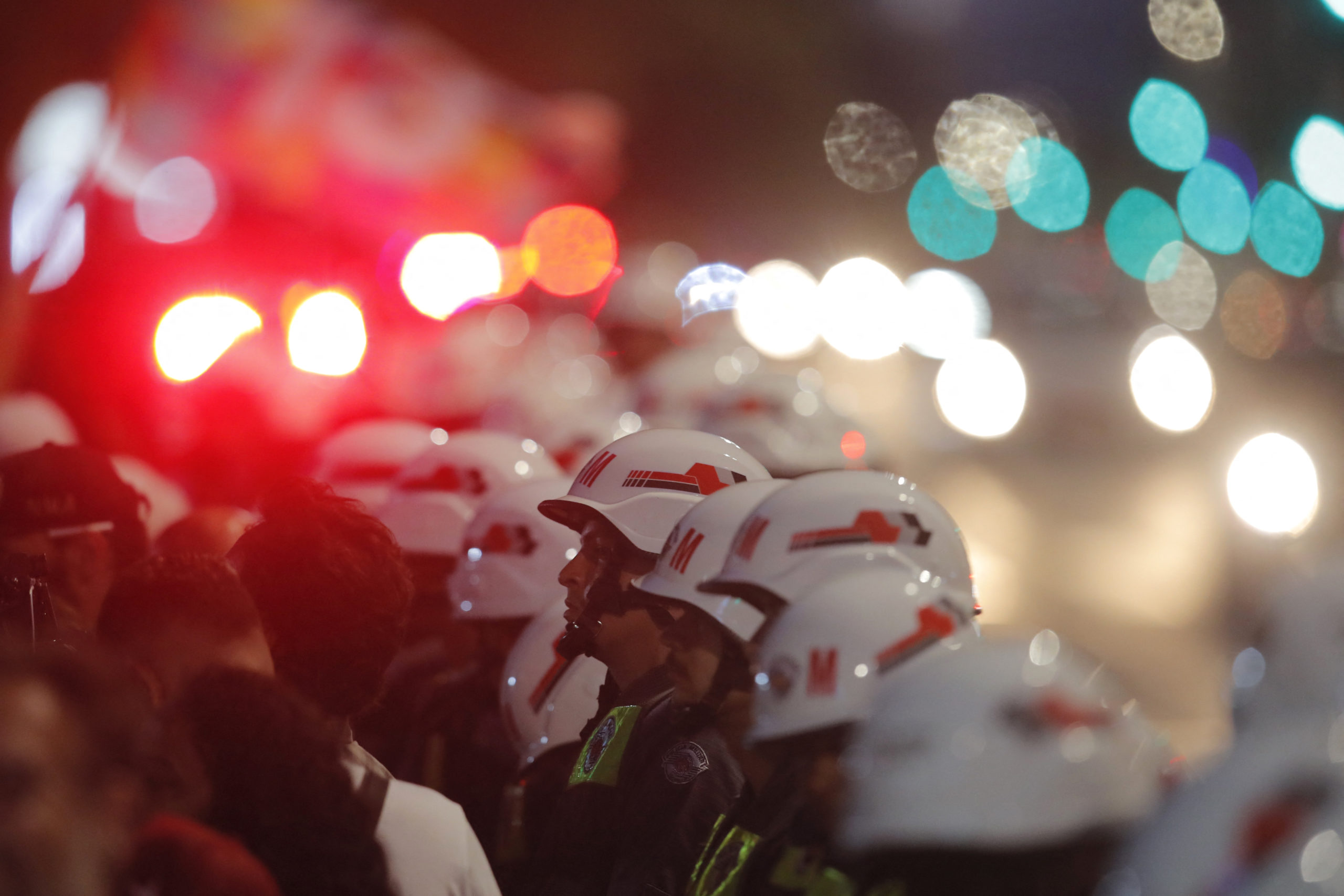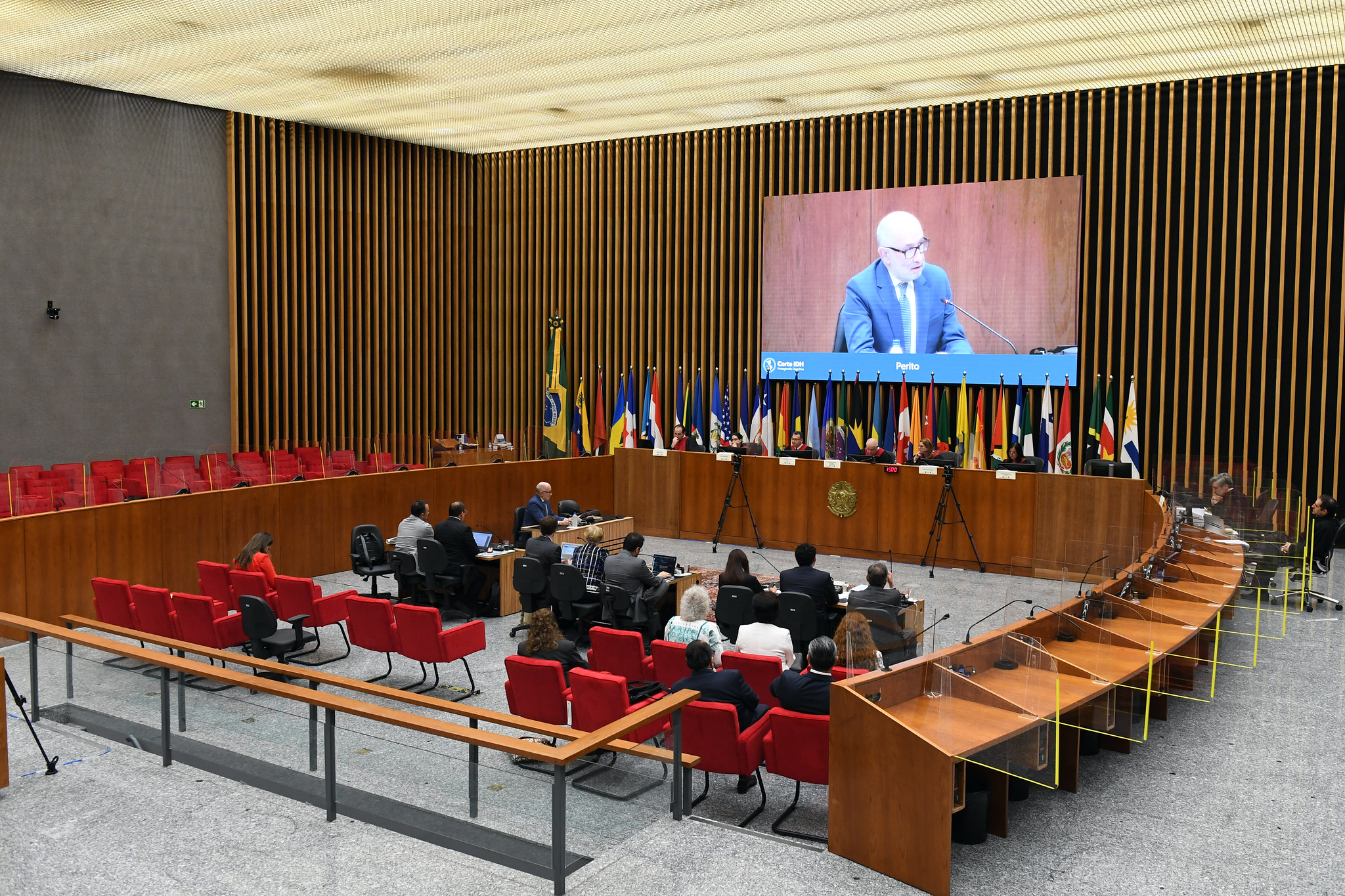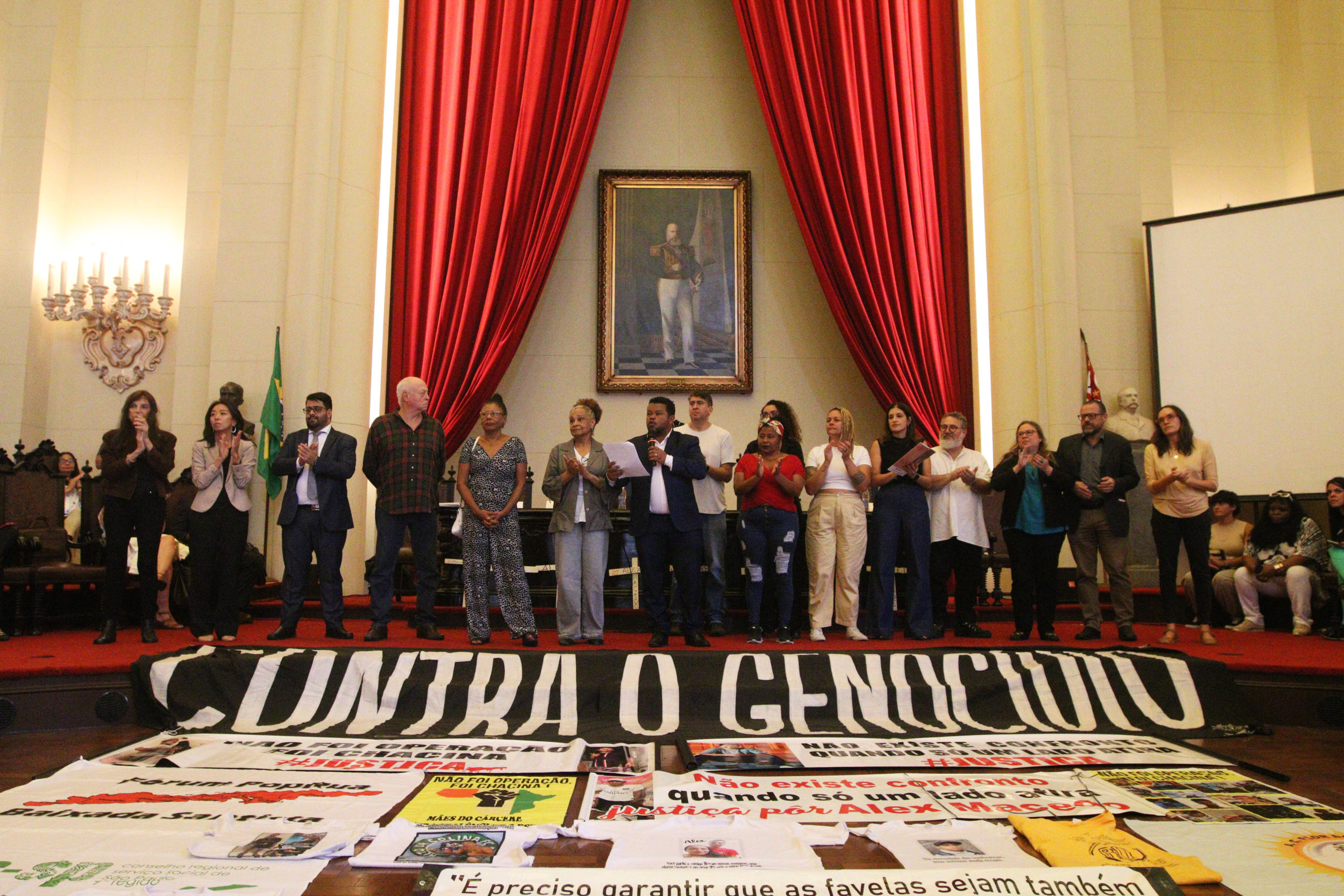Attack on the Civil Rights Framework
Organizations condemn bill imposing mass surveillance on the internet
Civil society has responded to the attempt by the Lower House of Congress to pass a bill that conflicts with the Civil Rights Framework for the Internet, which was signed into law after extensive public debate in June 2014. Bill 215/2015, drafted by Congressman Hildo Rocha of the Brazilian Democratic Movement Party (PMDB), and its appended texts permit the police authorities to censor internet content and gather information from users without a court order in cases of “crimes against honor” – libel, slander and defamation.
In practice, the bill prevents politicians that have not been convicted in court of being the target of criticism on the internet. It also establishes harsher penalties for crimes committed on the social networks and imposes mass surveillance of users.
Dozens of organizations have come out against Bill 215, which could be voted any day now by the Constitution and Justice Commission of the Lower House. In a public statement, the organizations asserted that the initiative “threatens the principles of the rule of law, in that it runs counter to rights established before the Civil Rights Framework was even passed, with the clear goal of overturning the victory that Brazilian society achieved in the National Congress”. They also criticized the process of voting the bill, without the due public debate.
Read the document in full:
Watch out, they want to mutilate the Civil Rights Framework for the Internet!
Civil society organizations from the Marco Civil Já coalition condemn the congressional initiatives that threaten privacy and freedom of expression.
There are a number of bills pending in the Lower House of Congress that threaten one of the most important democratic achievements of last year – the approval of the Civil Rights Framework for the Internet (Law 12,965/2014). The Framework guarantees fundamental rights for internet users, such as privacy and freedom of expression, in keeping with internationally accepted guidelines for internet governance.
Supported by powerful private and economic interests and motivated by a desire to restrict criticism protected by freedom of expression, lawmakers have introduced bills to the Lower House that alter the Framework.
Bill 215/2015, presented by Congressman Hildo Rocha of the Brazilian Democratic Movement Party (PMDB), and its appended texts – Bill 1547/2015, drafted by Congressman Expedito Netto of the Solidarity Party (SD), and Bill 1589/2015 of Congresswoman Soraya Santos of the PMDB – propose to include in articles 48 and 141 of the Criminal Code a harsher punishment for crimes committed on the social networks. Furthermore, they alter the provisions of Law 12,965/2014, rewording articles 10, 13, 15 and 19 and adding article 21-A. These changes allow the public authorities to access user data without a court order and to require that online content be removed in cases when there is a mere allegation of crimes against honor – libel, slander and defamation. They also impose physical and economic penalties on internet providers, undermining the principle of non-liability of the internet. Among the user data that may be obtained without a court order are the content of people’s communications on the internet – emails, messages and conversations on applications such as Skype and Whatsapp, for example.
In its seventh and latest version, the bill also requires larger amounts of personal data to be collected by internet providers, including an obligation to retain information such as full address, telephone number and CPF taxpayer identification number, which may be forwarded, without a court order, to any authority with the legal power to make such a request.
Bill 215/2015 poses a threat to the necessary balance between protecting the right to privacy and criminal prosecution, as well to democracy itself by allowing such abuses.
These proposals were already rejected during the passage of the law last year. Indeed, it is worth noting that the current provisions of the Framework were the result of a broad social debate and an intense political negotiation, making it one of the most democratic laws ever voted in the recent history of the National Congress.
We believe that any change to Law No. 12,965/2014 should be preceded by a qualified discussion supported by technical, political and social considerations. In particular, there must be an intense democratic participation similar to the process from which it originated, with a public consultation process in order that society can represent its interests on the matter of the protection of personal data and freedom of expression on the internet.
We know that a significant part of the PMDB political party directly opposed the approval of the Civil Rights Framework for the Internet, representing conservative and powerful economic interests. However, these interests cannot prevail over the guarantees established by the democratic legislative process and over the public interest so strongly defended in the debate for the Framework.
The initiative of the aforementioned lawmakers threatens the principles of the rule of law, in that it runs counter to rights established before the Civil Rights Framework was even passed, with the clear goal of overturning the victory that Brazilian society achieved in the National Congress.
Therefore, the organizations from the Marco Civil Já coalition condemn the devious and anti-democratic maneuver carried out by the PMDB, which encourages arbitrary surveillance and unreasonable censorship, and threatens the rule of law. And we request that lawmakers await the democratic process already established by the Executive Branch on the Personal Data Protection Bill that will address the same issues, only with broad participation.


